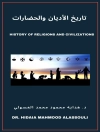In ‘Declaration and Address of the Christian Association of Washington, ‘ Thomas Campbell presents a foundational text for the Restoration Movement, articulating a vision for Christian unity and the restoration of New Testament Christianity. Written in an accessible yet earnest style, Campbell’s work calls for a return to the principles found in scripture, promoting a communal and non-denominational approach to faith. The document emphasizes essential Christian tenets while challenging the sectarian divisions that had marred the church’s integrity, positioning itself as both a theological treatise and a manifesto for reform. Thomas Campbell, a Scottish cleric and significant figure in early 19th-century American religious thought, was deeply influenced by the philosophical currents of his time, particularly the Enlightenment and its emphasis on reason. His experiences witnessing religious fragmentation led him to advocate for a more unified expression of Christianity, which is vividly expressed in this address. Campbell’s commitment to scriptural authority and desire for communal harmony reflect his broader aspirations for a more inclusive Christian fellowship. This book is a crucial read for anyone interested in church history, ecumenism, or the theological underpinnings of the Restoration Movement. Campbell’s passionate call for unity remains deeply relevant today, making this work an inspiring guide for contemporary Christians who seek to foster understanding and collaboration across denominational divides.
Mengenai Pengarang
Thomas Campbell (1763–1854) was a prominent figure in the early 19th-century movement for Christian unity. Born in County Down, Ireland, and educated at the University of Glasgow in Scotland, Campbell became an ordained minister in the Seceder Presbyterian Church. However, his ecumenical approach increasingly distanced him from sectarianism. In pursuit of a more universal Christianity, Campbell moved to the United States in 1807, where he worked to promote religious reformation and unity among Christians beyond denominational lines.
His seminal work, the ‘Declaration and Address of the Christian Association of Washington’ (1809), laid the foundational principles for what later became known as the Stone-Campbell Movement. In this document, Campbell advocated for a return to the practices of the early Christian church and emphasized the Bible as the sole rule of faith and practice. Campbell’s call for Christian unity and his challenge to traditional denominationalism were influential in the development of the Christian Church (Disciples of Christ), the Churches of Christ, and the Independent Christian Churches/Churches of Christ. As a scholar and reformer, Campbell’s legacy is marked by his commitment to biblical authority and the unity of all Christians, which continues to be a resonant theme in contemporary Christian discourse.




